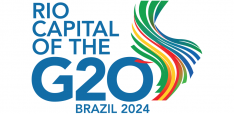The Digital Industries: Transparency as Mass Deception

The anonymity afforded by early incarnations of the internet posed a substantial threat to conventional models of national sovereignty. Free from restrictions and laws, cyberspace allowed users to set political agendas and subvert government messages. Presently, the internet is a space that celebrates transparency as users are motivated to bask in the limelight of social media. This essay argues that transparency is the weapon of choice of governments looking to strip cyberspace of its freedom. Moreover, the essay maintains that in order to transform transparency into a virtue, governments themselves migrated online as part of "open government" initiatives. This has created the allure of transparent governance. Yet as we demonstrate, every act of transparency is actually an act of concealment meant to obscure the fact that governments now focus primarily on the accumulation of information and the concealment of such information from the public under the guise of national security. The open government is thus really the concealed government and transparency emerges as a form of mass deception.
Policy recommendations
- Governments and tech giants are unlikely to reveal the scope and nature of the information they now amass on users of cyberspace. It may therefore fall on civil society organization and non-governmental organizations to demand actual transparency from governments and tech giants and to promote public debates regrading governments' authority to amass information on citizens.
- Governments are unlikely to regulate tech giants so long as they share data with government agencies. Civil society organizations must therefore lead the struggle for algorithmic transparency which would enable users to become informed consumers fully aware of the data being gathered by tech giants and what information can be extrapolated from this data.
- Multi-lateral organizations can play an important role in promoting government transparency by adopting open covenants of diplomacy. Recent initiatives by the International Telecommunications Union suggest that Multi-lateral organizations can adopt norms and collaborative working routines that could force governments to follow suit.
Credit image: Dennis Skley via Flickr (CC BY-ND 2.0)


